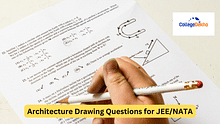
The KLUEEE 2026 Chemistry syllabus is one of the most important parts of the KL University Engineering Entrance Examination. Students who plan to study the B.Tech course at KL University must score well in Chemistry along with Physics and Mathematics to secure admission.
Knowing the complete
KLUEEE 2026
Chemistry syllabus, the chapter-wise weightage, and the most important topics will help you plan a smart study schedule. This guide explains everything: the full KLUEEE 2026 Chemistry syllabus, important topics, preparation strategy, and expected weightage.
Also Read:
Important Chemistry Concepts for KLUEEE 2026 Exam
KLUEEE Chemistry Syllabus 2026
The KLUEEE 2026 Chemistry syllabus is based on the NCERT Class 11 and Class 12 Chemistry syllabus. It is divided into three major sections: Physical Chemistry , Inorganic Chemistry , and Organic Chemistry .
Below is the complete chapter-wise KLUEEE syllabus for Chemistry in a simple table for quick reference.
| Section | Class 11 Chapters | Class 12 Chapters |
|---|---|---|
| Physical Chemistry | Some Basic Concepts of Chemistry, Structure of Atom, Classification of Elements & Periodicity, Chemical Bonding & Molecular Structure, States of Matter, Thermodynamics, Equilibrium, Redox Reactions | Solid State, Solutions, Electrochemistry, Chemical Kinetics, Surface Chemistry |
| Inorganic Chemistry | Hydrogen, s-Block Element (Alkali & Alkaline Earth Metals), p-Block (Group 13 & 14), Environmental Chemistry | p-Block (Group 15, 16, 17 & 18), d-Block Elements, f-Block Elements, Coordination Compounds, Extraction of Metals |
| Organic Chemistry | Some Basic Principles & Techniques of Organic Chemistry, Hydrocarbons | Haloalkanes & Haloarenes, Alcohols, Phenols & Ethers, Aldehydes & Ketones, Carboxylic Acids, Amines, Polymers, Biomolecules, Chemistry in Everyday Life |
Important Note:
The exam questions are almost fully aligned with NCERT Chemistry concepts. That means reading NCERT books line by line is essential.
Also Read:
How to Balance KLUEEE 2026 Prep and Class 12 Boards: A Complete Guide
KLUEEE 2026 Chemistry Important Topics
Not every chapter carries equal marks in the KLUEEE question paper. Some chapters are repeated in past papers and give a higher chance of scoring. Below is a list of high-weightage and important topics for KLUEEE 2026 Chemistry:
| Topic | Reason for Importance |
|---|---|
| Electrochemistry | Frequently tested for numerical and application-based questions |
| Chemical Kinetics | Straightforward formulas and easy calculations |
| Coordination Compounds | High number of direct theory questions |
| p-Block Elements | Many factual questions; high weightage |
| Organic Reaction Mechanisms | Covers multiple chapters and application questions |
| Thermodynamics & Thermochemistry | Core concepts for both theory and numerical |
| Chemical Bonding & Molecular Structure | Foundation for many other topics |
Extra Tip:
Always practice the
KLUEEE previous year question papers
of Chemistry to understand how these topics are framed in the exam.
Also Read:
How will KLUEEE 2026 merit list be prepared?
Tips to Prepare for KLUEEE 2026 Chemistry
A proper plan can make Chemistry one of the easiest-scoring subjects. Here are detailed preparation tips for KLUEEE 2026 Chemistry:
Cover NCERT Thoroughly
Every single line of NCERT Chemistry is important. Questions are often taken directly or slightly modified.
Highlight key reactions, formulas, and exceptions while reading.
Make Chapter-Wise Short Notes
Create a formula sheet for Physical Chemistry.
For Organic Chemistry, write down important reactions, reagents, and name reactions.
For Inorganic Chemistry, note periodic trends and exceptions.
Practice Numerical Problems Daily
Topics like Electrochemistry, Chemical Kinetics, Thermodynamics , and Equilibrium need regular numerical practice.
Time yourself while solving to improve speed.
Revise High-Weightage Topics First
Spend extra time on p-Block, Coordination Compounds, and Organic Mechanisms because they are often repeated.
Attempt Mock Tests and Past Papers
Solve at least 10 previous year Chemistry papers and KLUEEE mock tests.
Take timed mock tests to simulate the real exam environment.
Regular Revision
Revise key formulas, mechanisms, and exceptions every weekend.
Keep the final 15–20 days only for revision and full-length practice tests.
Balance Between Sections
Give equal time to Physical, Organic, and Inorganic Chemistry.
Many students ignore Inorganic, but it carries nearly 30% weightage .
Also Read: List of Courses Offered through KLUEEE 2026: Degrees and Specialisations
KLUEEE 2026 Chemistry Weightage
The exact chapter-wise weightage of KLUEEE Chemistry can vary each year, but past trends give a reliable estimate. The table below shows the expected section-wise weightage :
| Section | Expected Weightage |
|---|---|
| Organic Chemistry | ~35% |
| Physical Chemistry | ~35% |
| Inorganic Chemistry | ~30% |
Chapter-Wise High Weightage Estimate
| Chapter | Expected No. of Questions |
|---|---|
| Electrochemistry | 3–4 |
| Chemical Kinetics | 2–3 |
| p-Block Elements | 4–5 |
| Coordination Compounds | 3–4 |
| Chemical Bonding | 2–3 |
| Organic Mechanisms & Name Reactions | 5–6 |
These numbers are based on the last few years of KLUEEE exam trends and help you decide which chapters need extra practice.
Related Links:
The KLUEEE 2026 Chemistry syllabus is fully based on NCERT Class 11 and 12 topics. Success depends on strong fundamentals, regular practice, and smart time management. First, finish the full NCERT syllabus. Second, give extra attention to high-weightage chapters such as Electrochemistry, p-Block, and Coordination Compounds. Finally, revise repeatedly and solve past papers to improve speed and accuracy. Following this simple plan will help you score high in KLUEEE Chemistry 2026 and secure admission to KL University’s B.Tech programs.
Are you feeling lost and unsure about what career path to take after completing 12th standard?
Say goodbye to confusion and hello to a bright future!

FAQs
Revise NCERT thoroughly, solve numerical problems daily, and focus on high-weightage chapters like p-Block and Coordination Compounds.
No major changes are expected. Keep checking the KL University official website for updates.
Organic Chemistry generally holds about 35% of the total Chemistry marks, making it a key scoring area.
Yes, NCERT Chemistry books are more than enough. After finishing NCERT, practice previous year papers and mock tests.
The Chemistry section usually has about 40 questions, equal to Physics and Mathematics.
Important topics include Electrochemistry, p-Block Elements, Coordination Compounds, Chemical Kinetics, and Organic Reaction Mechanisms.
The syllabus follows the NCERT Class 11 and 12 Chemistry topics, including Physical, Organic, and Inorganic Chemistry.
Was this article helpful?




















Similar Articles
Architecture (B Arch/B Planning) Drawing Questions for All Exams: JEE Main, JEE Advanced, NATA
KLUEEE 2026 Rank Card: Understanding Your Rank and Marks
AEEE 2026 Math Important Topics, Weightage & Strategy for High Scores
AEEE 2026 Chemistry Important Topics, Weightage & Study Tips for High Score
Master AEEE 2026 Physics: Important Topics & Weightage Explained
GATE 2026 Cutoff for GFTI - Check Maximum & Minimum GATE Score Required for Admission